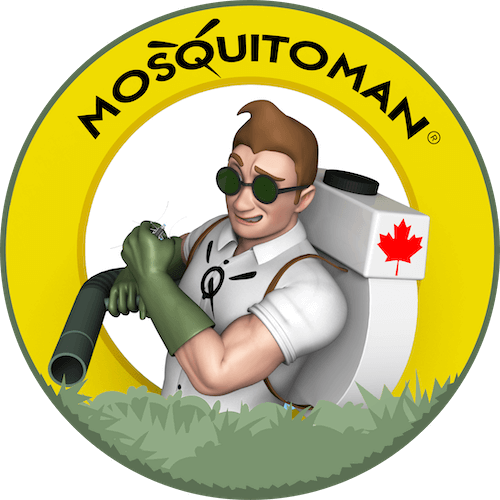Tick bites that won’t heal can lead to complications like rashes, infections, and persistent symptoms; seek medical care if symptoms worsen. Understanding the importance of prevention and proper tick removal can help manage these bites effectively. Learn about our tick control services in Canada.
The Importance of Addressing Tick Bites Promptly
How can tick bites affect your health?
Tick bites can be bad for your health. Ticks are small bugs that stick to your skin. They may carry germs that cause infections or diseases like Lyme disease. After a tick bite, your skin might swell, turn red, or hurt. If you don’t treat the bite, it could cause bigger problems with your joints, heart, or nerves.
What are common symptoms of a tick bite infection?
It’s important to know the signs of a tick bite infection early. You might see a rash where the tick bit you. Sometimes, it looks like a bull’s-eye if it’s from Lyme disease. You could also get flu-like symptoms, such as fever, chills, or tiredness. The skin around the bite might turn red and itchy. If you have these symptoms, talk to a doctor.
Why is early detection crucial for tick bites?
Finding tick bites early helps stop bigger health problems. If you find and treat a bite quickly, it can prevent infections like Lyme disease. This is why checking your skin and removing ticks fast is important. Seeing a healthcare provider early can help you get treatment soon, lowering the chance of complications.
Learn more: Natural Remedies for Tick Bites: Home Treatments and Relief and Tick Bites and Red Meat Allergy: Understanding Alpha-Gal Syndrome
How to Identify Tick Bites That Won’t Heal
What does a healing tick bite look like?
When a tick bite heals, you will see it getting better over time. At first, there might be a small scab. The redness and swelling should go down as your skin heals. Taking care of the bite by keeping it clean helps it recover. If everything is fine, these signs should go away in a few weeks.
When should you be concerned about a tick bite that won’t heal?
If a tick bite isn’t healing, check for ongoing symptoms. If it stays red, swollen, or painful, it could be infected. In this case, you need to see a doctor. A doctor can check and decide if you need more treatment. Don’t ignore these signs; see a healthcare professional if the bite isn’t getting better.
Medical Conditions Related to Tick Bites
Ticks are tiny insects that can cause health problems. When a tick bites, it may pass harmful bacteria and viruses. Knowing about these tick-borne illnesses helps with prevention and treatment.
What diseases are commonly transmitted by ticks?
Ticks spread several diseases, such as:
- Lyme Disease: This is the most common tick-borne illness in the U.S., caused by the bacterium Borrelia burgdorferi.
- Rocky Mountain Spotted Fever: A serious illness from the bacterium Rickettsia rickettsii.
- Babesiosis: This affects red blood cells and is spread by Babesia microti, mostly in the northeast and upper Midwest.
- Ehrlichiosis: Caused by Ehrlichia chaffeensis with symptoms like the flu.
- Anaplasmosis: Results from the bacterium Anaplasma phagocytophilum, with symptoms similar to Ehrlichiosis.
How can tick bites lead to Lyme disease?
Lyme disease happens when infected black-legged or deer ticks bite and transmit Borrelia burgdorferi bacteria. A key sign is a skin rash called erythema migrans, looking like a bullseye or expanding rash around the bite. Early detection and treatment help prevent issues.
Can tick bites cause allergic reactions?
Yes, tick bites can cause allergies in some people. One is an allergy to red meat, known as alpha-gal syndrome, from a sugar in the tick’s saliva. Symptoms vary from mild itching to severe reactions after eating red meat.
Effective Treatments for Persistent Tick Bites
If tick bites don’t heal well or last too long, treating them quickly prevents problems.
What are the recommended treatments for tick bites that won’t heal?
For persistent or infected tick bites, try these treatments:
- Antibiotics: Needed for bacterial infections from tick bites. Ask a healthcare provider for the right type and dose.
- Antiseptic creams: Apply these to stop further infection and assist healing.
- Wound care: Keep the area clean and dry. Use bandages if needed to protect from dirt and germs.
Seeing a healthcare provider is smart for stubborn or infected tick bites.
Should you use antibiotics for tick bite infections?
Doctors often prescribe antibiotics for tick bites that cause bacterial infections. The specific antibiotic and how long you need it depend on the bacteria. Follow your healthcare professional’s advice to clear up the infection completely.
What role do antiseptic creams play in healing tick bites?
Antiseptic creams help manage tick bites by preventing irritation and infections. Over-the-counter products reduce swelling and help heal by keeping the wound clean and free from germs.
Preventative Measures Against Tick Bites
How can you protect yourself from tick bites while outdoors?
When you go outside to hike or walk in grassy areas, you might get tick bites. To stay safe, wear light-colored clothes so you can see ticks easily. Tuck your pants into your socks to keep ticks from crawling up. Use insect repellent with DEET on your skin and clothes for extra protection. Try to walk in the middle of trails and stay away from tall grasses and bushes.
What clothing and products help prevent tick bites?
The right clothes can help stop tick bites. Wear long-sleeved shirts and pants to cover most of your skin. Treat your clothes with permethrin, a safe insecticide that keeps ticks away. Use repellents with DEET on your skin as well. These things help keep ticks off when you’re in areas where they live.
Is there a vaccine available for tick-borne diseases?
Right now, there are no vaccines in the U.S. for Lyme disease or other tick-borne diseases. Scientists are working on it, though. They want to find ways to prevent these diseases. Stay informed about new research so you can better protect yourself and your family.
Natural Remedies and Home Care for Tick Bites
What are some effective home remedies for tick bite care?
If a tick bites you, take care of it quickly. First, remove the tick and wash the area with soap and water. Use antiseptic cream to stop infection. To ease itchiness and swelling, try a cold compress or an antihistamine. These home remedies help your recovery.
Can essential oils help soothe a tick bite?
Essential oils like lavender or tea tree oil can help calm a tick bite. Mix the oil with another oil and put it gently on the bite. While these natural remedies can help, watch the bite for any problems and talk to a doctor if needed.
How can dietary changes aid in recovery from tick bites?
Changing what you eat can help your body fight back after a tick bite. Eat healthy foods like fruits, veggies, and whole grains to boost your immune system. Foods with vitamin C, zinc, and omega-3s make you healthier. A good diet helps your body recover faster.
Understanding the Long-Term Effects of Tick Bites
Tick bites can cause long-term health problems. If a tick gives you Lyme disease or another illness, you might have ongoing symptoms. Chronic Lyme disease can make you feel tired, hurt your joints, and even make thinking hard. This can change how you live every day.
Both your body and mind can be affected for a long time. Being aware of these possible effects is the first step to dealing with them. Learning about how tick bites can keep affecting your health is important.
Seeking Professional Help for Tick Bite Complications
If you think a tick bite is causing problems, see a healthcare provider. Doctors are good at finding and treating diseases from ticks. They will check your symptoms and give you the right care.
Some people react strongly to tick bites and need quick help. Catching Lyme disease early makes treatment easier. If not treated, it can cause bigger health issues. Work with your doctor on a plan to get better. Getting advice soon helps manage recovery and improves health.
Lifestyle Changes to Avoid Future Tick Bites
Simple changes in how you live can help stop tick bites. To prevent ticks from causing harm, wear long sleeves and pants when you’re in the woods or tall grass. Protective clothing works like a shield against ticks. Know where ticks live, like in leaf piles or tall grasses, so you can avoid these spots.
What habits can reduce the risk of tick bites?
When doing outdoor activities, use these habits to avoid tick bites:
- Wear light-colored clothing: It helps you spot ticks easily.
- Use insect repellent: Pick one that works well against ticks.
- Perform regular tick checks: After being outside, check your body for ticks in spots like behind the knees and around the waist.
These habits make being outdoors safer and more fun.
How does vegetation and landscaping impact tick presence?
Managing vegetation can lower tick presence. Here are some ways:
- Keep lawns mowed short: Ticks like tall grass, so cutting it often makes them leave.
- Remove leaf litter: Leaf piles give ticks a place to hide, so clear them away from your home.
- Create open areas: Ticks don’t do well in sunny, open spaces compared to shady, wooded spots.
Changing your landscape can reduce tick numbers around your home.
Are there community efforts to manage tick populations?
Communities help manage tick populations to keep people healthy. Here are some efforts:
- Organized tick control programs: These may involve using pesticides in areas with high tick numbers.
- Public education efforts: Workshops and campaigns teach people about tick prevention.
- Collaboration with local authorities: Communities work with health departments to monitor and control tick populations.
Together, these efforts help lower tick-borne diseases and make areas safer.
Advances in Research on Tick Bites and Prevention
Research on how to prevent tick bites is getting better. New science focuses on controlling tick-borne diseases and finding new ways to manage them. These efforts aim to both treat and prevent tick-related illnesses, which helps public health.
What new research is being conducted on tick bite prevention?
Recent studies on tick bite prevention show new strategies like:
- Vaccine development: Scientists are working on vaccines to protect against tick-borne diseases.
- Biological control agents: Using natural predators or pathogens to reduce tick numbers.
- Innovative repellents: Testing new repellents for their effectiveness against different tick species.
These studies offer hope for better prevention techniques.
How might scientific advancements change future tick bite management strategies?
New scientific advancements could change how we manage tick bites in the future. Possible future strategies include:
- Developing more effective tick repellents: New studies may lead to repellents that last longer.
- Implementing targeted tick control methods: Using genetic modification of ticks might become an option.
- Using technology for monitoring: New tech could track tick populations in real-time for faster responses to outbreaks.
These advancements promise to enhance tick prevention and management, making outdoor spaces safer.
Frequently Asked Questions: FAQs About Tick Bites that won’t heal
What are common symptoms of tick bites that may not heal quickly?
Tick bites can cause a red spot, swelling, or itching that doesn’t go away. Sometimes, they lead to a small bump called a granuloma. If these symptoms don’t improve, see a doctor for help.
How can I prevent tick bites effectively?
Wear long-sleeved shirts and pants in grassy or wooded areas. Use insect repellent with DEET on your skin. Check yourself and your clothes for ticks after being outside, and take a shower to remove any ticks before they attach.
What should be done if a tick bite results in a swollen lymph node?
A swollen lymph node after a tick bite might mean you have an infection. Keep the area clean and watch for fever or rash. If swelling continues, visit a doctor.
What ticks carry Lyme disease, and how can I recognize their bites?
Deer ticks, also called blacklegged ticks, spread Lyme disease. Their bites might look like a circular rash with a clear center, known as a “bull’s-eye.” If you think you have this kind of bite, see a doctor quickly.
What is the recommended process for safe tick removal?
Use fine-tipped tweezers to grab the tick close to your skin. Pull it out straight without twisting. Clean the area and your hands with alcohol or soap and water. Dispose of the tick safely.
Can tick bites lead to psychological or emotional symptoms?
Tick bites themselves don’t cause mental health problems, but some diseases from ticks, like Lyme disease, can make you feel sad or moody. If you have these feelings with other symptoms, talk to your doctor.
What should I do if a tick bite rash won’t go away?
If your tick bite rash keeps going, see a doctor. A long-lasting rash might mean an infection that needs treatment. Getting help early can prevent more problems.
How can tick bite prevention contribute to overall health?
Stopping tick bites keeps you safe from diseases they carry, which can harm your body and mind. By staying safe, you stay healthy and active.
Tick Bites that won’t heal – Key Insights
- Taking care of tick bites is important to avoid diseases like Lyme disease, tularemia, and borreliosis. Keeping ticks away can help.
- If a tick bite turns into a rash that won’t go away, see a doctor. This can stop problems like swelling and joint pain.
- Tick bites that heal slowly or cause a bump may mean an infection or allergy. It’s good to get checked by a healthcare professional.
- For children, tick bites can make them itchy or red. Parents should keep an eye on these and protect kids from tick-transmitted diseases.
- Use insect repellent with DEET and wear long sleeves and boots to keep ticks off when in grassy or wooded places.
- The NHS and other health organizations suggest removing ticks with tweezers fast to lower the risk of illnesses like tick paralysis and skin rashes.
- Tick bites can lead to bigger health issues like heart and mental health problems if tied to conditions like Lyme disease syndrome.
- Studies from universities and health institutes show it’s key for patients, nurses, and primary care providers to know about tick bite prevention and treatment.
- Articles and news on ticks emphasize the need for diversity and inclusion in health practices to give all patients good and quick care.
- If tick bite symptoms don’t go away or improve over time, follow up with a doctor to find more treatment options to prevent complications.





